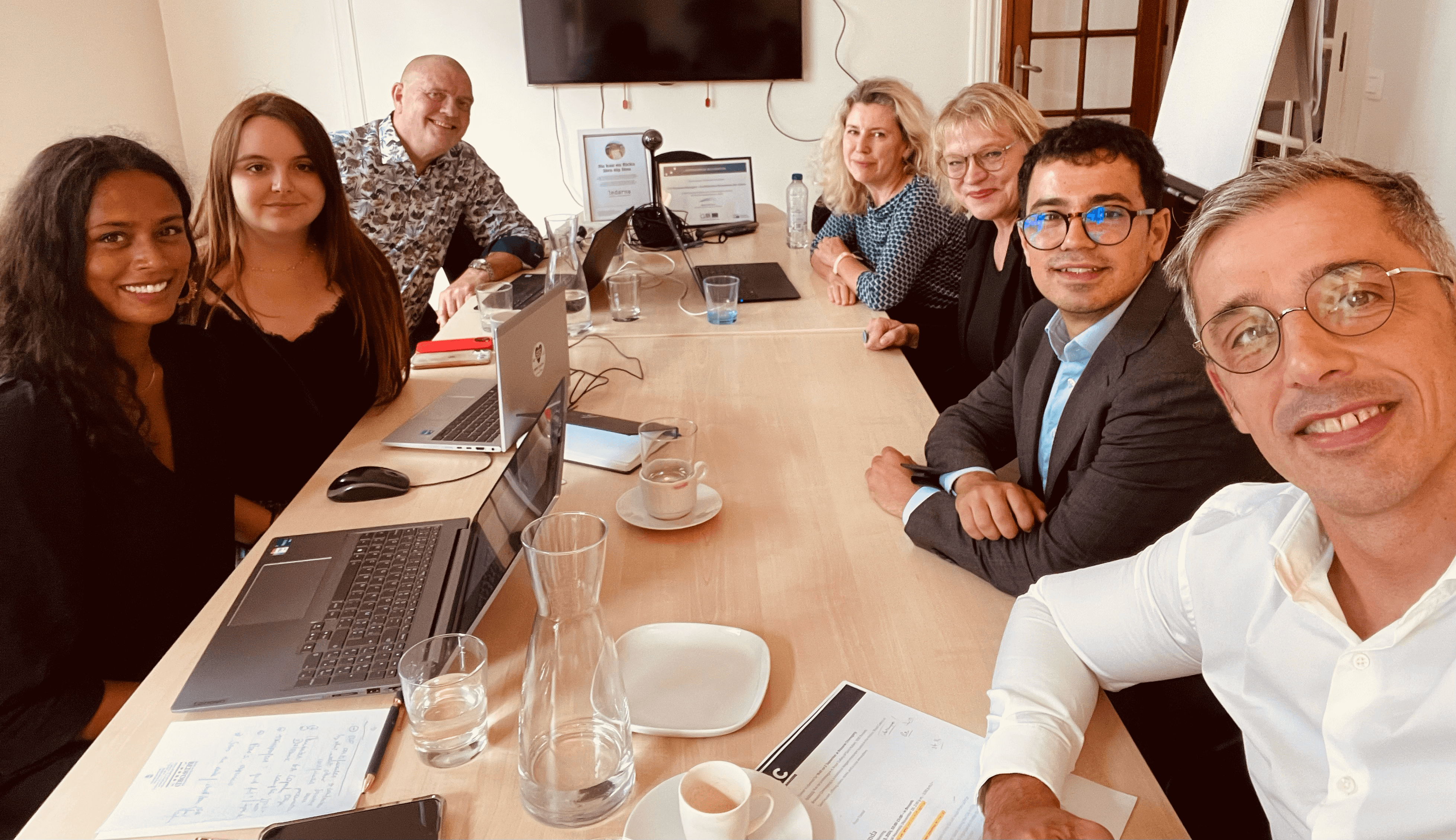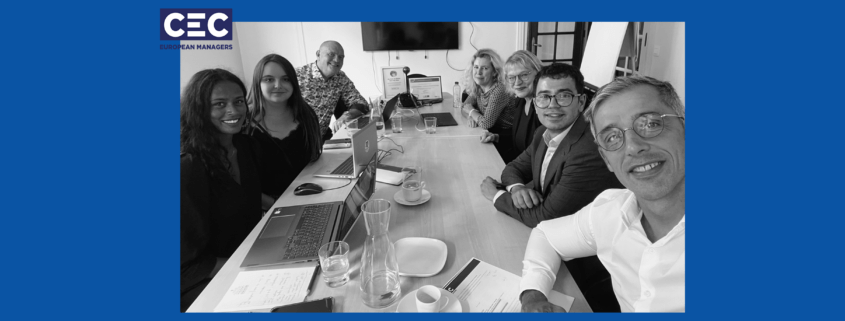New CEC executive board sets strategic priorities for leadership and innovation in Europe
The new executive of CEC European Managers met yesterday, 3rd of September, at the confederation headquarters in Brussels, right in the middle of the European quarter, next to the European Commission.

The meeting lasted the whole day and was chaired by the President of the Confederation, Maxime Legrand, re-elected in June at the General Assembly that took place in Copenhagen and that preceded the conference offered by the Vice-President of the European Commission Margrethe Vestager .
Alongside Legrand, the rest of the executive comprises Torkild Justessen (Secretary General), Silvia Pugi (Deputy Secretary General) and Ebba Öhlund (Treasurer).
Last steps towards the end of the European project Beyunbi
On the agenda, the executive put on the table the last arrangements to finish the various Public Events related to the European Project Beyunbi, as well as the various face-to-face trainings that remain to be done in Denmark (Copenhagen) and France (Paris). The Final Conference of this European project, which will take place in Brussels on November 27, was also discussed.
In this sense, the executive of the CEC European Managers explained that everything related to unconscious bias in the workplace and leadership positions arouses interest in the political sphere of the European Union and that it is expected that the final conference will have a good impact on the participation of prominent actors.
He also highlighted the importance that CEC places on disseminating the results of the international survey led by the University of Southern Denmark, which involved managers and leaders from several countries, providing scientific evidence on issues of bias and prejudice among the managerial staff of Europeans.
Precisely within the framework of our commitment to European projects, CEC has recently made a huge effort by presenting the AI Manage project to the European Commission. The project is innovative in its format as it incorporates the actions of several social partners from both the employer and employee sectors. It is now under review by the experts of the European Commission. The final result with the acceptance or rejection of our proposal is expected for December 2024.
In sync with the European Commission’s 2024-2029 priorities
During the meeting, the executive of the CEC shared the need to adapt the research work and expertise led by the organization’s work groups to the priorities for the new mandate of the European Commission.
Key issues such as the digitization of workspaces and the necessary paths towards innovation are interlinked with other major objectives, such as sustainability in the fight against climate change and the need for the European Union to be competitive and self-sufficient in the face of a complex international geopolitical context.
In this sense, the redefinition of the working groups of CEC will be very relevant in the coming weeks.
Next steps in communication
For months, the CEC European Managers has been implementing new communication strategies with some great successes, such as the official recognition from the European Parliament. The three axes of this strategy aim to publicize the role of leaders and managers and the importance of taking care of managerial staff for the proper functioning of European companies, explain the collaborations and consultation processes with the European Commission, and disseminate the intense activity of our member organisations and sectoral federations so that Member States represented at the Council of the European Union reinforce national social dialogue.
In this sense, in the coming weeks – as it has been happening in the last months -, specific initiatives related to dissemination and communication will be visible through our channels.
A new mandate for a future committed to social dialogue
In conclusion, the new executive wants to disseminate and multiply the voice of the member organisations and sectoral federations of CEC European Managers to highlight the great work done by the 15 countries that we are now representing.
Leaders and managers are bridge builders, capable of facilitating innovation processes and efforts between employers and employees. Leaders and managers must have the essential tools to ensure that the processes of transformation of the European economy benefit everyone equitably and fairly.




